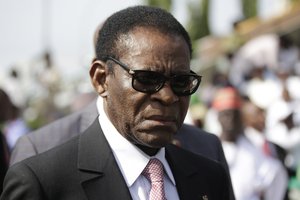Tribeca’s Storyscapes projects used technology to explore blindness, solitary confinement and more
Edit Crunch 25 Apr 2016
As the Tribeca Film Festival winds down in New York City, we’re highlighting one of the most tech-driven parts of the event — Storyscapes, which showcased 10 works of virtual reality and interactive storytelling. At Storyscapes, I talked to the creators of Notes on Blindness (which won the juried Storyscapes award), 6×9, The Argus Project and Network Effect, among others ... ....
Vox Media introduces Circuit Breaker, a classic gadget blog on a Facebook page
Edit Sydney Morning Herald 25 Apr 2016Cybercrooks posing as tech support steal data: report
Edit The Hindu 25 Apr 2016
“With close to five lakh attacks last year, India ranked 11th amongst countries targeted the most by tech support scams...Countries targeted the most by tech support scams were the US, UK, France, Australia and Germany,” Tarun Kaura, director, Solution Product Management (Asia Pacific and Japan) at Symantec said....
The Tech Guy 1282
Edit Twit TV 25 Apr 2016
Host. Leo Laporte. Guest. Chris Marquardt. How to learn programming, cracking into an old Windows Vista PC, best security cameras, how to modify your router settings, best Android tablet, upgrading to Windows 10, and more of your calls. Download or subscribe to this show at https.//twit.tv/shows/the-tech-guy. For detailed show notes, visit techguylabs.com. Bandwidth for the Tech Guy podcast is provided by Cachefly ... ....
Honda powers Alabama’s workforce with Barber racetrack event (Alabama Department Of Commerce)
Edit Public Technologies 25 Apr 2016
(Source. Alabama Department Of Commerce). Alabama students got a hands-on look at the high-tech operations of the state's manufacturers over the weekend, while Indy racecars sped by in the background ... But this wasn't your typical career fair ... 'These are high-tech jobs that involve robotics, machining and other advanced operations ... That's a message Keaton Wood relays to students when he talks at various career events put on by Honda....
'Silicon Valley' used Google's robot dog Spot in its season 3 premiere
Edit Business Insider 25 Apr 2016
Things are not going well for Richard at the start of season three. Warning. There are spoilers ahead for season 3 of "Silicon Valley." ... He's so distraught that he and Erlich Bachman (T.J ... Their trip is quickly halted ... Not quite ... An HBO representative told Tech Insider that not only did Boston Dynamics actually let Spot appear in the man-on-robot violence scene with T.J ... Read the original article on Tech Insider ... More from Tech Insider. ... ....
+ ZJU Launches High-end Makerspace [04-25-2016] (Zhejiang University)
Edit Public Technologies 25 Apr 2016
A total of 6 student teams, such as ENTER Sci-tech and the Marine Product Toxicity Analysis Team, get stationed in Cookie Makerspace ... very rare to find such a makerspace which offers a wide spectrum of first-class facilities in universities,' says Yi Haoxiang, who is in charge of ENTER Sci-tech....
FBI paid at least $1.7 million for tool to hack terrorist iPhone
Edit Sydney Morning Herald 25 Apr 2016
The controversy that swirled in the tech community over the Department of Justice's litigation — attempting to force Apple to aid the FBI into circumventing the iPhone's security protection — in some ways is exactly what allowed the FBI to break into the phone, Comey told the audience ... People should continue to talk about it because ......
Here's the preview for the next episode of 'Game of Thrones'
Edit Business Insider 25 Apr 2016
"Game of Thrones" has finally premiered, and fans are thrilled, especially about the big Melisandre reveal. But the excitement doesn't die down yet — the new preview for the next episode looks just as epic. Watch it below.. First of all, we'll be seeing a lot of Lannister vengeance ... ... Read the original article on Tech Insider. Follow us on Facebook and Twitter. Copyright 2016. More from Tech Insider. ... ....
'Silicon Valley' made a lot of changes to its opening for the new season
Edit Business Insider 25 Apr 2016
"Game of Thrones" wasn't the only show to return to HBO Sunday night. "Silicon Valley" had its season three premiere afterward. If you paid close attention, the show made a lot of subtle changes to its opening animation sequence to reflect the ever-changing look of companies in Silicon Valley ... There is a lot more going on ... Read the original article on Tech Insider ... Copyright 2016. More from Tech Insider. ... ....
Thin iron-based insulator-like film found capable of superconductivity at a high temperature (Tokyo Institute of Technology)
Edit Public Technologies 25 Apr 2016
Researchers at Tokyo Tech reveal that a thin film transitions to a superconducting state at a temperature far above absolute zero - a potential boon for the field of superconductivity ... Recently, Tokyo Tech researchers achieved a major breakthrough in superconductivity ... The Tokyo Tech team plans to build on its findings in high-temperature ......
Sunday’s big 'Game of Thrones' twist has been planned for a long time
Edit Business Insider 25 Apr 2016
Warning. Major spoilers ahead if you have not watched the season six premiere of "Game of Thrones.". The sixth season of "Game of Thrones" started with a huge reveal that many fans didn't see coming, despite the previous hints on the series ... Though some dedicated fans had already worked out the truth, many people were surprised to see Melisandre in her real form ... Read the original article on Tech Insider ... More from Tech Insider. ... ....
- 1
- 2
- 3
- 4
- 5
- Next page »








